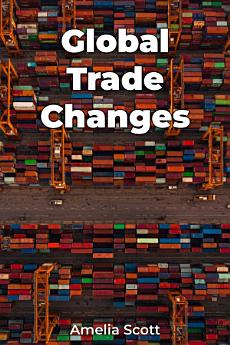Global Trade Changes
About this ebook
The book adopts a data-driven approach, drawing on trade statistics from organizations like the WTO and IMF, alongside economic studies and policy reports, to support its arguments. It explores how automation and e-commerce are reshaping trade patterns and analyzes the decline of traditional trading powers, emphasizing the need for proactive adaptation in a rapidly changing global environment. This interdisciplinary work connects economics with political science, sociology, and technology studies, providing a holistic understanding of global trade.
Structured in four parts, the book progresses from core concepts of international trade and globalization to geographical shifts, the intricacies of global value chains, and the disruptive effects of technology. By focusing on merchandise trade and foreign direct investment, Global Trade Changes offers an in-depth analysis of the dynamics driving these transformations and addresses ongoing debates about globalization's benefits and costs, the role of protectionism, and technology's impact on employment and income inequality.








